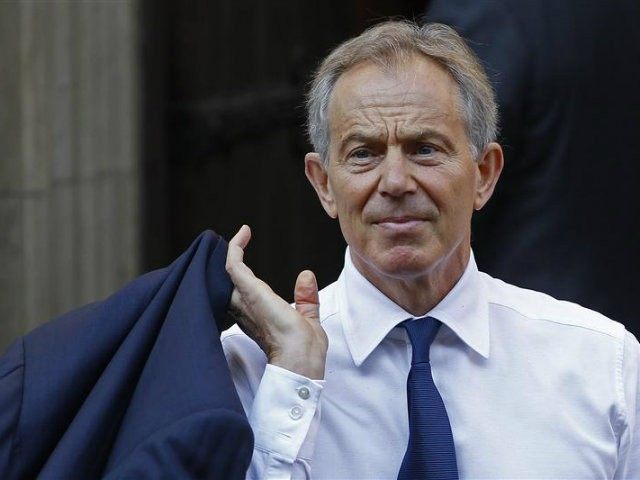Former Prime Minister Tony Blair could face war crimes charges as a result of the Chilcot Inquiry into the Iraq War, the House of Lords has been told.
The possibility was mentioned during a debate on the investigation into Britain’s role in the American led invasion in 2003 where peers spoke out about the huge length of time taken to publish the report, the Telegraph reports.
Liberal Democrat peer Lord Dykes of Harrow Weald claimed the publication was being delayed “to prolong the agony” of Mr Blair. And he was backed up by former Conservative foreign secretary Lord Hurd who said the delay was “becoming a scandal”.
The former Tory MP asked the House, “Is not this continuing delay an utter and total disgrace and so much time has elapsed? Is my noble friend aware that more and more people think it is some kind of attempt to prolong the agony of Mr Blair facing possible war crimes charges?”
Lord Wallace of Saltaire, a Government minister, told Peers that the publication of talks regarding conversations between George W Bush, former US President, and Mr Blair which had been holding up the publication, had now been completed. But he warned that if the report is not published by the end of February, it will be delayed until after the General Election to avoid any question of it being turned into a political football ahead of the crunch vote.
The one million word report will contain details of more than 200 cabinet meetings as well as other discussions relating to the decision to go to war without the sanction of the UN Security Council.
Lord Wallace said that the delay so far had been because the inquiry did not have enough staff to process the huge pile of documents relating to the report but pointed out that compared to other reports of a similar controversial nature and scale, it was not delayed.
Nevertheless, Lord Hurd described the time taken to publish the conclusions as “beyond the questions of mere negligence and forgivable delay – it is becoming a scandal”.
“This is not something which is of trivial importance, it is something which a large number of people in this country look anxiously for truth.”
“This inquiry has been looking at nine years of british policy and operations within Iraq, it has not entirely unexpected that it has turned out to take a long time” Lord Wallace responded.
He said that the £24million Al Sweady report into alleged maltreatment of Iraqis by British troops took five years report “on two battles in one afternoon”.
The £13.5million Baha Mousa “inquiry looking into the death in UK custody of one Iraqi civilian in September 2003 took three years”.
Lord Wallace said the timing of the report’s publication was in the hands of the Government but he hoped “we are very close to the finishing line”.
A total of 179 British servicemen and women lost their lives during OP TELIC with many more wounded including a significant number who survived despite severe injuries and loss of limbs. The number includes troops who were killed when the official role of British troops had been scaled back after the fall of Saddam Hussein, including the six Royal Military Policemen who lost their lives when a mob attacked a police station in Majar al-Kabir. Orders were not passed down to the platoon that they should be carrying 150 rounds of ammunition and instead were only carrying 50, not enough to defend themselves.
The Chilcot Inquiry was announced by former Prime Minister Gordon Brown and officially launched on 30th July 2009, where its chairman, Sir John Chilcot set out the Terms of Reference:
“Our terms of reference are very broad, but the essential points, as set out by the Prime Minister and agreed by the House of Commons, are that this is an Inquiry by a committee of Privy Counsellors. It will consider the period from the summer of 2001 to the end of July 2009, embracing the run-up to the conflict in Iraq, the military action and its aftermath. We will therefore be considering the UK’s involvement in Iraq, including the way decisions were made and actions taken, to establish, as accurately as possible, what happened and to identify the lessons that can be learned. Those lessons will help ensure that, if we face similar situations in future, the government of the day is best equipped to respond to those situations in the most effective manner in the best interests of the country.”

COMMENTS
Please let us know if you're having issues with commenting.